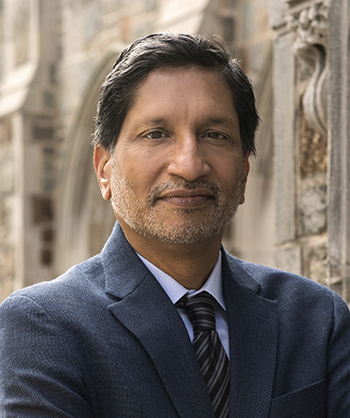Project Summary
Boston College School of Social Work (BCSSW) and the United Way of Massachusetts Bay (UW) are collaborating to respond to family homelessness in Massachusetts and its negative impact on child and adolescent outcomes. Our goal is to improve outcomes for families experiencing housing instability through a coordinated approach to research and translation of findings to practitioners and policymakers. We are collaborating with one of UW’s partner agencies, FamilyAid, on a new initiative – the Early Homelessness Intervention and Prevention (EHIP) pilot program. This program leverages connections with the Boston Public Schools to identify families at high risk of homelessness and intervenes before children and youth are exposed to the trauma and disruption of eviction. The partnership uses quasi-experimental approaches to
(1) evaluate the effectiveness of the EHIP program on child and youth academic and socioemotional outcomes and
(2) generate evidence on reliable indicators of the risk of homelessness. We are also using multiple techniques to elicit insights around the complexity of housing instability and service provision, as well as how best to adapt EHIP and our research-practice approach to address homelessness, socioemotional wellbeing, and educational outcomes.
Approach & Goals
We are co-producing knowledge and tools using multiple techniques, including quasi-experimental methods, surveys, analysis of administrative data, in-depth interviews, and Community-Based System Dynamics —a participatory approach that engages communities in understanding and changing systems.
Measurement & Metrics
Key outcome measures include child and youth social and emotional well-being and academic engagement. The study will draw on multiple data sources, including Boston Public Schools administrative data, FamilyAid assessment data, and baseline and follow-up survey data.
Publications & Presentations
Academic Publications
- Using community-based system dynamics to understand connections between housing and education: A case study with implications for homelessness prevention school-housing partnership. American Journal of Community Psychology.
- Observations from social work researchers on assessing a homelessness prevention research-practice partnership. Journal of Community Practice
- The relationship between housing insecurity and adolescent academic outcomes: evidence from a 15-year longitudinal study. Journal of Social Distress and Homelessness (2025).
- Identifying students at risk of homelessness: Evidence from Boston. Children & Schools (under review)
- Exploring the Experiences of Participants in a School-Housing Partnership. Journal of Social Service Research
Reports
- A School-Housing Partnership for Stability: Indications of Success and Opportunities for System Change, Boston College School of Social Work. Chestnut Hill, MA (October 2023)
- Capacity, burnout, and trust: Insights from frontline housing crisis responders. United Way of Massachusetts Bay and Merrimack Valley. This report summarizes findings from our United Way Learning Community system modeling activities.
Presentations
- Advancing the science and capacity for preventing family homelessness in school settings. Society for Social Work and Research Annual Conference, Seattle, WA. (January 2025)
- Housing outcomes among unstable families served by a novel school district-housing agency partnership. Society for Social Work and Research Annual Conference, Seattle, WA. (January 2025)
- Dynamics of a homelessness prevention research-practice partnership. Society for Social Work and Research Annual Conference, Seattle, WA. (January 2025)
- The relationship between housing status and parent and child well-being: Evidence from a research-practice partnership. Society for Social Work and Research Annual Conference, Seattle, WA. (January 2025)
- Identifying students at risk of homelessness: Evidence from Boston. Society for Social Work and Research Annual Conference, Seattle, WA. (January 2025)
- Early Homelessness Intervention and Prevention update. Homeless Liaison Convening, Boston, MA. (October 2024)
- Housing hardship and adolescent academic outcomes: Examining the role of school mobility. Society of Social Work and Research Annual Conference, Washington D.C. (January 2024)
- Family homelessness prevention for educational equity: Building evidence of collective impact and developing practice capacity. Greater Boston’s Annual Insight-To-Impact Summit, Cambridge, MA. (April 2023)
Blogs
- Responding to complexity: Co-producing knowledge and interventions to improve the well-being of youth and families. William T. Grant Foundation
Project Leads at BCSSW

Gautam Yadama, Dean, Boston College School of Social Work
Principal Investigator

Indrani Saran, Associate Professor of the Practice, Behavioral Research/Biostatistics, BCSSW
Co-Investigator

Jessica McCabe Johnson, Director, Family Housing Hardship Program, BCSSW
Co-Investigator

Thomas Byrne, Associate Professor, BCSSW
United Way
Project Leads
Ellen Dickenson, SVP Research, Analytics and Planning,
United Way of Massachusetts Bay
Principal Investigator
Sarah Bartley, Senior Vice President, Safe & Stable Housing,
United Way of Massachusetts Bay
Boston Public Schools
Brian Marques, Senior Director, Department of Opportunity Youth, Boston Public Schools
Kedan Harris, Assistant Director, Department of Opportunity Youth, Boston Public Schools
FamilyAid
Larry Seamans, President & CEO, FamilyAid


